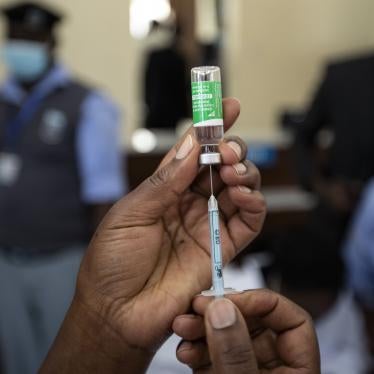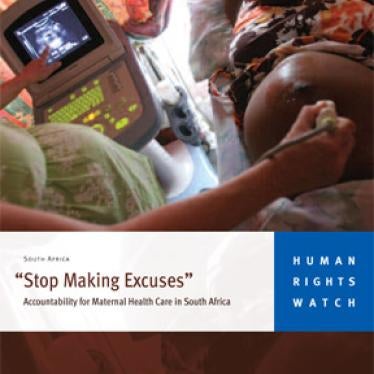In the October 2009 issue of Health and Human Rights, Joe Amon, Françoise Girard, and Salmaan Keshavjee respond to a recent article, "Limitations on human rights: Are they justifiable to reduce the burden of TB in the era of MDR- and XDR-TB?" in which Andrea Boggio et al. argue that involuntary treatment and other compulsory measures for patients with tuberculosis (TB) can be justified as a "last resort" under international human rights law. The full article is available here.
Abstract
Recent attention to multidrug-resistant and extensively drug-resistant tuberculosis (MDR- and XDR-TB) has increased discussion and debate over the extent to which limitations to human rights can be justified in the name of public health. In their recent article "Limitations on human rights: Are they justifiable to reduce the burden of TB in the era of MDR- and XDR-TB?" Andrea Boggio et al. argue that involuntary treatment and other compulsory measures for patients with tuberculosis (TB) can be justified as a "last resort" under international human rights law, particularly the Siracusa Principles. Although there is little international disagreement with this position in theory, in practice TB policies that limit individual freedoms and restrict rights are not always determined on an individual basis or as a "last resort." Particularly in the case of drug-resistant TB, some countries have adopted rights-limiting measures before offering appropriate and proven programmatic interventions that respect human rights. For example, the implementation of compulsory isolation in South Africa, which is unnecessary from a scientific standpoint and dangerous from a programmatic perspective, fails to meet the protections envisioned under human rights law. By contrast, programs in Lesotho and elsewhere have demonstrated that community-based treatment models that respect rights can provide clinically effective and cost-effective care. For this reason, we argue that the "choice" presented by Boggio et al. between public health goals and human rights in the case of drug-resistant TB is largely a false one. Although there may indeed be rare cases in which restrictions on rights are necessary, greater emphasis must be put on ensuring access to effective, sustainable, and rights-respecting community-based treatment when responding to MDR- and XDR-TB.







